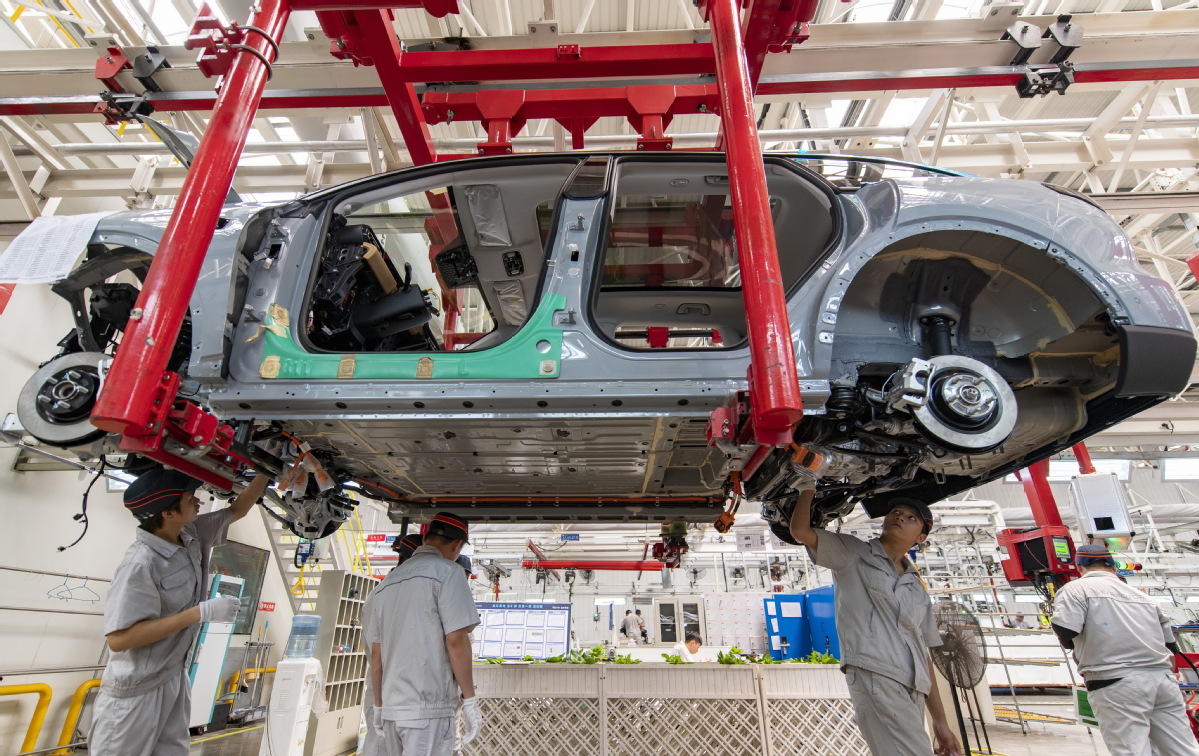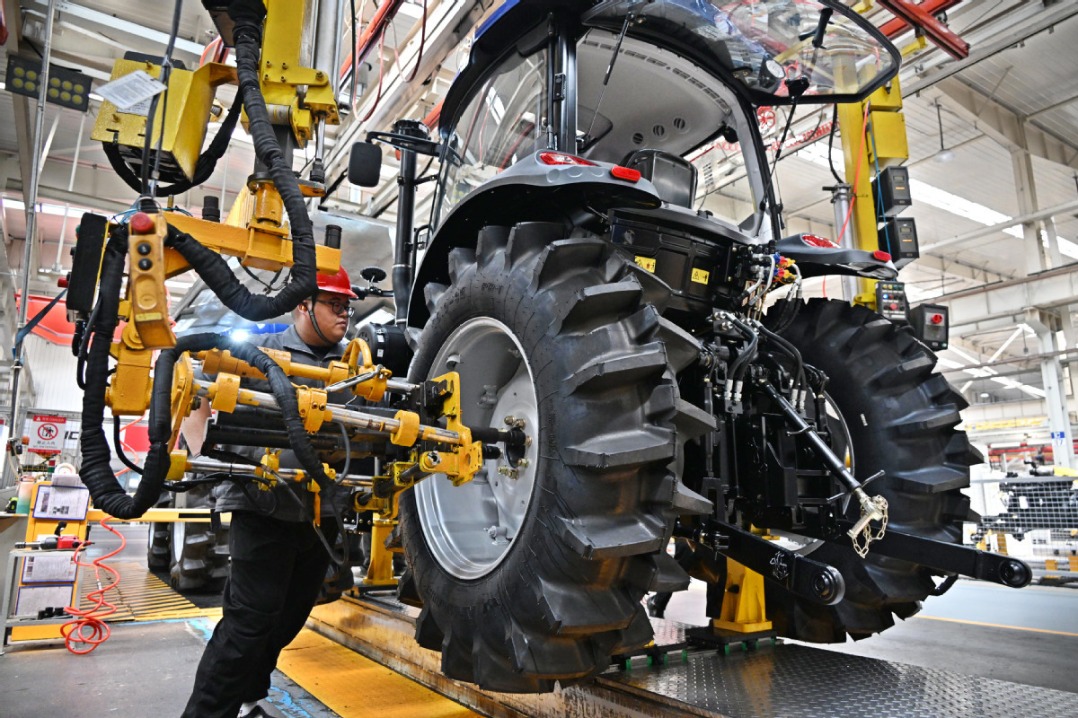China's tech advances boon for enterprises worldwide
New quality productive forces seen invigorating economy, spurring capital


China's emphasis on driving a shift to new quality productive forces will inject strong tailwinds into the economy and create rising growth opportunities for investors worldwide, said Simon Lacey, head of Digital Trade and Geopolitics at the World Economic Forum.
"I think China is well positioned to benefit and also accelerate its development in the area of new technologies such as artificial intelligence, internet of things and industrial robots," Lacey said during an exclusive interview with China Daily.
Recognizing the importance of these technologies going back to the early 2000s, China has initiated necessary reforms and bolstered the capacity of domestic firms and universities, positioning itself as a formidable player in the high-tech sector, he said.
"Chinese firms have proven that they can really innovate at the margins incrementally to produce breakthrough technologies," he added.
Official data reflect the marked shift with exports of high-tech and green "new three" products experiencing substantial growth. Exports of the "new three" — electric vehicles, lithium-ion batteries and solar cells — registered a year-on-year increase of around 30 percent in 2023, said the General Administration of Customs.
"China recognized the importance of these technologies decades ago and invested accordingly, and now it has clearly got a competitive advantage in the 'new three' sectors," Lacey said.
He believes that China is on track to achieve its goals of fostering new quality productive forces, especially in terms of cultivating cutting-edge technologies, adding that more efforts are needed to further expand high-standard opening-up and strengthen global cooperation.
"China just needs to keep on the path that it's on and it'll succeed. I think the most important thing is really that technical knowledge needs to be able to flow across borders, and you need to have this sort of open innovation model."
Looking ahead, he said China and the US — the world's two largest economies — should continue to cooperate and work together and rebuild trust in a number of areas, including green development.
"There are many areas where the US and China's interests align, and they're not in direct competition with one another. I think competition can be very healthy as long as it doesn't lead to confrontation which can escalate," he said. "If we can get to a stage of healthy competition, there can be a lot of benefits for the rest of humanity as both countries are trying to compete with each other on a whole range of really important technologies."
Lacey highlighted China's importance to global firms with its ultra-large domestic market as well as its role as a center for innovation and research.
"Global companies that want to stay at the cutting edge of technological innovation need to be in China for producing, selling and innovating. Otherwise, they just can't maintain their global competitiveness. China has made remarkable progress in upskilling its workforce and creating the world's largest and arguably most inclusive and equitable middle-income economy. Where it needs to do better is spreading the benefits of its growth beyond its cities to the countryside, and achieving sort of more balanced and more inclusive growth."




































